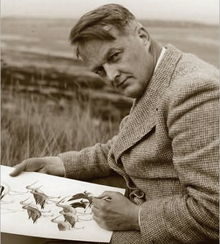A Quote by Kristy Hinze
Eighty-two percent of Australia's bird species and two thirds of Australia's mammal species can be found on our (Australian Wildlife Conservancy) reserves. We put teams of people on the frontline in the battle against feral animals, wildfires and noxious weeds. Science underpins everything we do.
Related Quotes
When I am at a dinner table, I love to ask everybody, 'How long do you think our species might last?' I've read that the average age of a species, of any species, is about two million years. Is it possible we can have an average life span as a species? And do you picture us two million years more or a million and a half years, or 5,000?
There are millions of different species of animals and plants on earth--possibly as many as forty million. But somewhere between five and fifty BILLION species have existed at one time or another. Thus, only about one in a thousand species is still alive--a truly lousy survival record: 99.9 percent failure!
We ourselves are part of a guild of species that lie within and without our bodies. Aboriginal peoples and the Ayurvedic practitioners of ancient India have names for such guilds, or beings made up (as we are) of two or more species forming one organism. Most of nature is composed of groups of species working interdependently.
I conclude where I began, I was elected by the people of Australia to do a job. I was not elected by the factional leaders of Australia, of the Australian Labor Party to do a job - though they may be seeking to do a job on me, that's a separate matter. The challenge therefore is to honour the mandate given to me by the Australian people.
There are about 250,000 different species of fossil plants and animals known . . In spite of this large quantity of information, it is but a tiny fraction of the diversity that [according to the theory] actually lived in the past. There are well over a million species living today and . . [it is] possible to predict how many species ought to be in our fossil record. That number is at least 100 times the number we have found.







































